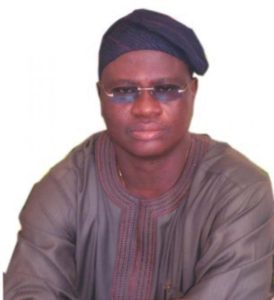
The recent election of Comrade Adewale Adeyanju as President-General of the Maritime Workers Union of Nigeria (MWUN) through a peaceful and democratic process is a clear indication that the union has come of age. Indeed, since 2001, after Nigeria’s docklabour reform, the union has imbibed and sustained the attributes of a progressive labour movement.
Shortly before the 2001 docklabour reform, the Maritime Workers Union of Nigeria was seen primarily as a weapon of oppression, suppression and extortion. The MWUN leaders of old were viewed as demi-gods who held the entire maritime industry by the jugular, extorting huge sums of money from shipping lines, stevedoring companies and the Nigerian Ports Authority at will.
Ironically, the workers, especially dockworkers, which the union leaders at the time claimed to represent, were in fact victims of a warped and oppressive system. The condition under which the dockworkers worked was appalling and their remuneration one of the worst in the country. When a dockworker died, compensation running into millions of naira was typically paid into the coffers of the union without it getting to the bereaved family.
While the union leaders fed fat, their members wallowed in poverty and misery. To make ends meet therefore, most of the dockworkers of that era turned to stealing and pilfering of cargoes at the port. Hooliganism became associated with dock work, leading to dockworkers being despised and loathed by the system they serve.
Many dockworkers were tagged ‘wharf rats’ because, since they lacked sufficient resources to acquire or rent decent accommodation; they lived inside the port. At night, the various sheds and terminals were converted into bedrooms, homes and even brothels.
After port and government officials must have closed, the dockworkers broke into containers, stoles bags of rice, sugar and other loose items. They also freely vandalized imported vehicles. Cases of broached containers, missing gearboxes, brain boxes, wheels and other vital components of vehicles awaiting Customs clearance at the ports abound.
However, all of these have changed with the docklabour reforms of 2001 and the port reform of 2006. Private terminal operators who emerged as concessionaires of the ports took it upon themselves, with the active support of the leadership of MWUN, to redefine the fortunes of the dockworkers. Today, dockworkers are better paid and they enjoy enhanced welfare package. They also have conditions of service, unlike what obtained in the past.
The leadership of the Maritime Workers Union of Nigeria, since the days of Comrade Onikolaese Irabor, who served as President-General from 2001 to 2009 and Comrade Emmanuel Anthony Nted, who led the union from 2009 to 2017 deserve mention and commendation for ensuring a radical departure from the thuggery and hooliganism hitherto associated with the union. The matured and progressive approach adopted during the tenure of the two leaders not only ensured peace and stability in the port system, it also led to enhanced welfare of the dockworkers and other port workers.
As fate would have it, Comrade Adewale Adeyanju, who was recently elected MWUN President-General is no stranger to the system. In fact, he was part of the union’s past leadership that ensured stability at the ports, having served as President of its Dockworkers’ Branch for eight years.
The task before Adeyanju and his team, therefore, is the consolidation of reforms at the port. While he works to ensure better welfare for MWUN members, the new President-General must continue to see port operators as partners in progressive.
We believe that the new MWUN leader is well equipped to steer the union to a greater height through stakeholder engagement, dialogue and non-violent negotiations. Indeed, dockworkers are rest assured that they have elected a leader they would be proud of in years to come.